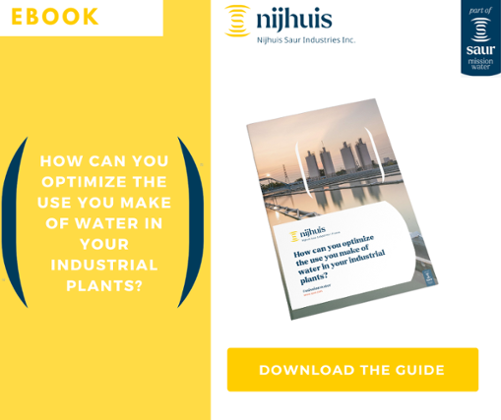For industrial users, having sufficient water to ensure the smooth-running of their processes is a non-negotiable essential. But the issue of water resource quality is just as important, and should never be overlooked. To guarantee that the plant is competitive in the marketplace and maintains a good image, the water it uses must be appropriate to its needs.
- Environmental and health issues for industrial companies
- The right quality of water for the job
1 - Environmental and health issues for industrial companies
From production stoppages to product recalls, introducing inferior quality water into your industrial plant can have catastrophic consequences for the company. Those consequences may impact not only production, but also corporate image, because the issues around water resources go much further than simply their availability. With health concerns and pollution issues becoming increasingly prevalent, quality is also becoming more and more important.
The purpose of regulations is to set minimum quality thresholds for water, and in France it is the Regional Health Agencies (ARSs) that impose strict compliance with them. Whether environmental or health-related, the challenges at stake here are much too high for any industrial company to even attempt to get around the rules. But there are water quality monitoring systems available to help them ensure that they comply fully with all applicable standards; these include self-monitoring in conjunction with sensors at all key stages of the production cycle, for example.
On the other hand, there is nothing to prevent the use of water of a quality that is strictly speaking ‘too high’ for the intended industrial use. The most classic example is black water. Just as we do at home for flushing the toilet, industrial plants use high-quality drinking water to flush their black water processes. It is unfortunately still extremely rare to find an industrial user prepared to invest in installing a separate system to perform this function using collected rainwater.
2 - The right quality of water for the job
However, producing water of a specific quality usually comes with a significant price tag. And few industrial users can countenance this level of extravagance in today’s world, where productivity relies so heavily on cost control. The bottom line is that the majority of industrial plants use standard drinking water, either from the public water supply system, or abstracted from a borehole, although water from this source still requires treatment.
Some industrial users also save money by recycling a particular type of water. One example we are aware of is a commercial dairy that recovers what they call ‘cow water’. This water is produced as an evaporation product when the plant manufactures milk powder from conventional liquid milk, and is generally of high quality (milk is around 90% water, after all). After membrane filtration to remove viruses, bacteria and other organic matter, it can be used for the first - rinsing - phase of production line cleaning, for example.
On the other hand, some industrial applications require water that meets a specific quality standard. For example, water used in a heating plant must be softened to prevent scale build-up in the system; its chloride content must also be controlled to avoid issues such as pitting and oxidation. Some processes cannot be envisaged without a supply of water filtered by reverse osmosis to remove most of the impurities, dissolved elements and other contaminants. The membrane filtration system used to purify this type of water is expensive to install and maintain, which is why the water it produces is used directly for a specifically targeted process.
Please refer to the following articles to learn more about industrial water quality:
If you have questions about any of these issues, or would welcome expert support for improving water resources in your industry... Please contact us to tell us about your project.
